
Executive Director
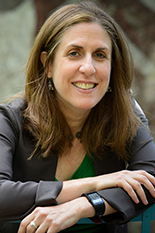 Mia MacDonald is the Executive Director of Brighter Green (www.brightergreen.org), a New York-based public policy action tank that works to raise awareness and encourage dialogue on and policy attention to issues that span the environment, animals, and sustainable development globally. Its works has a particular focus on equity and rights. At Brighter Green, she directs strategy, programs, and collaborative projects. Prior to founding Brighter Green, Mia was a policy analyst, writer, editor, and project manager as a consultant on sustainable development, women’s rights, reproductive health, population, conservation, and animal protection. She worked with the Ford Foundation, the World Wildlife Fund, and the Green Belt Movement, among many others, as well as several United Nations agencies. She has taught in the Environmental Studies program at New York University and at the Earth Institute at Columbia University and the Human Rights program at Columbia University’s School of International and Public Affairs. Mia MacDonald is the Executive Director of Brighter Green (www.brightergreen.org), a New York-based public policy action tank that works to raise awareness and encourage dialogue on and policy attention to issues that span the environment, animals, and sustainable development globally. Its works has a particular focus on equity and rights. At Brighter Green, she directs strategy, programs, and collaborative projects. Prior to founding Brighter Green, Mia was a policy analyst, writer, editor, and project manager as a consultant on sustainable development, women’s rights, reproductive health, population, conservation, and animal protection. She worked with the Ford Foundation, the World Wildlife Fund, and the Green Belt Movement, among many others, as well as several United Nations agencies. She has taught in the Environmental Studies program at New York University and at the Earth Institute at Columbia University and the Human Rights program at Columbia University’s School of International and Public Affairs.
Mia has published many articles and opeds, authored a number of policy papers and reports, been quoted in a variety of media, and contributed to several books, including Nobel Peace Laureate Wangari Maathai’s bestselling autobiography, Unbowed. She serves as treasurer of the Green Belt Movement International-U.S., co-vice president of the Culture and Animals Foundation, on the U.S. board of the Africa Network for Animal Welfare, and has served on the board of directors of Farm Sanctuary and the Food Empowerment Project. Mia received a master’s degree in public policy from the John F. Kennedy School of Government at Harvard University, a B.A. with honors from Columbia, and also studied at Oxford University. |
Advisory Board
 Anna Lappé Anna Lappé
Anna is a public speaker, author, and advocate for better access to local, climate-friendly food. She co-founded the Small Planet Institute and the Small Planet Fund with her mother, Frances Moore Lappé. Her books include Diet for a Hot Planet: The Climate Crisis at the End of Your Fork and What You Can Do About It and (with her mother) Hope’s Edge: The Next Diet for a Small Planet. |
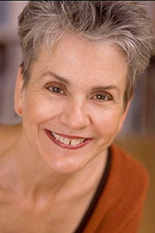 Frances Moore Lappé Frances Moore Lappé
Frances is a noted author, activist, and environmentalist. She founded the Oakland-based non-profit Food First: The Institute for Food & Development Policy, as well as the Small Planet Institute and the Small Planet Fund. Her books include the pioneering Diet for a Small Planet and (with Adam Eichen) Daring Democracy: Igniting Power, Meaning, and Connection for the America We Want. |
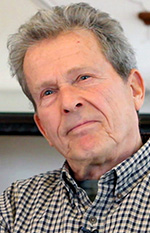 Jim Mason Jim Mason
Jim is a writer and attorney. He is the author of An Unnatural Order: The Roots of Our Destruction of Nature and co-authored Animal Factories and The Ethics of What We Eat: Why Our Food Choices Matter with philosopher Peter Singer. |
 In Memoriam: Wangari Maathai (1940-2011) In Memoriam: Wangari Maathai (1940-2011)
Professor Maathai, the 2004 Nobel Peace Prize Laureate, founder of The Green Belt Movement. |
Associates
 Sangamithra Iyer Sangamithra Iyer
Sangamithra is a writer and a licensed professional civil engineer who holds a Bachelor’s degree from The Cooper Union, a Master’s degree from UC Berkeley, and an MFA in Creative Writing from Hunter College. She served as the Assistant Editor of Satya magazine and a co-producer of the Women’s Collective monthly radio program on the Pacifica Station WBAI. She has volunteered at primate rescue and rehabilitation sanctuaries in the U.S. and in Africa. Her writing explores issues related to animals, agriculture, and social and environmental justice. Selections of her work can be seen at Satya magazine, n+1, Hippocampus magazine, Local Knowledge and Our Hen House. Her essays have been anthologized in Sister Species: Women, Animals and Social Justice (University of Illinois Press) and Primate People: Saving Nonhuman Primates through Education, Advocacy and Sanctuary (University of Utah Press). She is the co-author of two Brighter Green policy papers, Skillful Means: The Challenges of China’s Encounter with Factory Farming, (PDF) and Veg or Non-Veg? India at the Crossroads (PDF). In 2014, she authored a short ebook, The Lines We Draw regarding the use of chimpanzees in research. Sangu is interested in tracking the global rise of meat, egg, and dairy consumption and its environmental and social implications. She currently works in public service on watershed protection and water supply infrastructure. |
 Simone G. de Lima Simone G. de Lima
Simone is a biologist and Professor of Developmental Psychology at the Universidade de Brasília, Brazil. With a background in activism for democracy, inclusive education, human and animal rights and the environment, she founded and is the director of ProAnima, (Associação Protetora dos Animais do DF—The Association for the Protection of Animals of the Federal District). At the Universidade de Brasília she teaches and develops projects related to the inclusion of children with atypical development and has collaborated with CDS (Center for Sustainable Development) on Human-Animal interaction themes. In addition to collaborating with Brighter Green, Simone worked with a number of non-profit and community initiatives in the U.S. while living for three years in the Washington, D.C. area, including the Tacoma Time Bank and the Washington Animal Rescue League. |
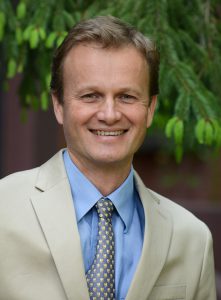 Martin Rowe Martin Rowe
Martin is the co-founder and publisher at Lantern Books, which publishes books on vegetarianism, environmentalism, animal advocacy, religion, and social justice. He is the author of The Elephants in the Room, The Polar Bear in the Zoo, and Nicaea, and editor of The Way of Compassion and Running, Eating, Thinking: A Vegan Anthology. He co-founded the magazine Satya. He initiated the Vegan America Project, which is being run under the auspices of Brighter Green. The Project is an investigation of how we might envision the United States of America around the year 2050, should it be no longer possible or desirable to use animals for food, clothing, labor, entertainment, or experimentation. |
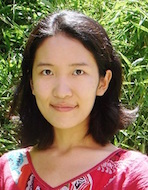 Wanqing Zhou Wanqing Zhou
Wanquing is a Research Associate at Worldwatch Institute, where her studies touch on climate change, energy, and food systems. She is also an International Assistant with the Alliance to Save Energy, where her work focuses on climate and gender in Southeast Asia, and U.S.–China sustainable development exchange. Being vegan since 2009, she believes in the power of love that humans have for nature, and the brighter balance this love can lead to. She graduated with a Bachelor’s degree in Biotechnology and Ecology from the University of Hong Kong in 2011, and received her Master’s degree in Climate & Society from Columbia University. She also worked on freshwater conservation and public education at the World Wide Fund for Nature China Programme Office, and was an intern at China’s National Center for Climate Change Strategy and International Cooperation, where she participated in the pre-study of the emission trading scheme pilot in Beijing. In the summer of 2014, Wanqing toured multiple cities in China and shared Brighter Green’s documentary film What’s For Dinner? with Chinese and international audiences. |
Staff and Interns
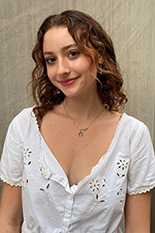 Willa Broderick Willa Broderick
Willa is an intern at Brighter Green and an undergraduate student completing a major in Sustainable Development at Columbia University. She is from Denver, Colorado, and began her work with Brighter Green in January of 2022. She is particularly interested in environmental policy, sustainability management, and climate mitigation. She is part of the 2022 Navab Fellowship program at Columbia University. |
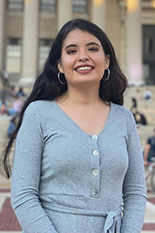 Kiara Ordonez Kiara Ordonez
Kiara is an intern at Brighter Green and an undergraduate doing a double major in Economics and Sustainable Development at Columbia University. She is from Arequipa, Peru. Her experience as an environmental activist inspired her to work on climate and environmental policy, with an interest in pushing for climate adaptation in the Global South. She is part of the 2022 Navab Fellowship program at Columbia University, which connected her to the work of Brighter Green. |
 Brighter Green
Brighter Green



